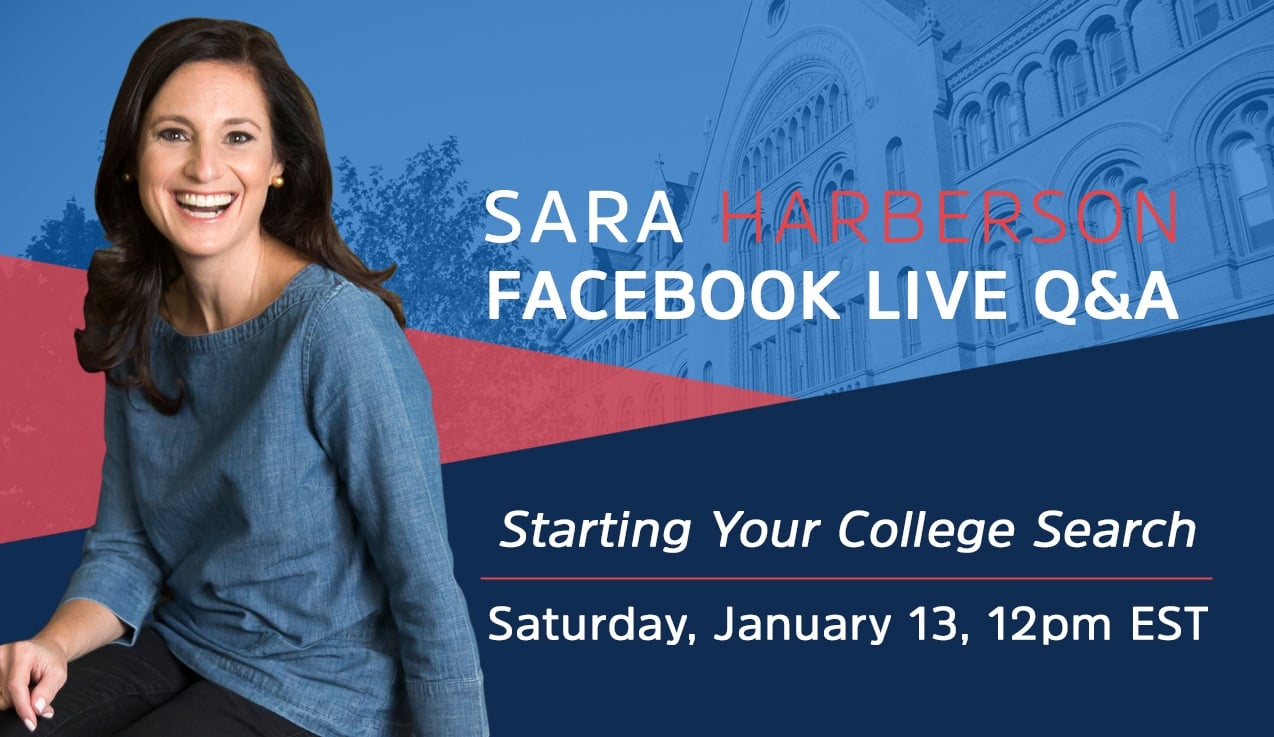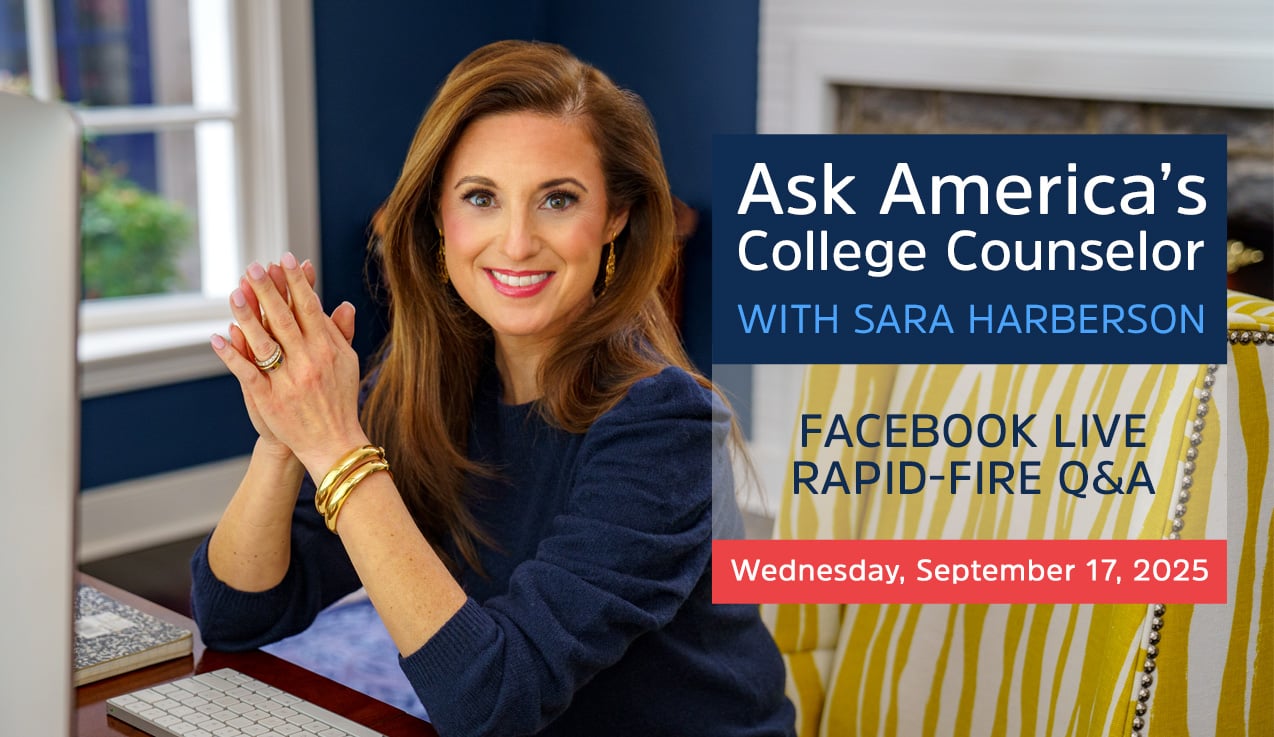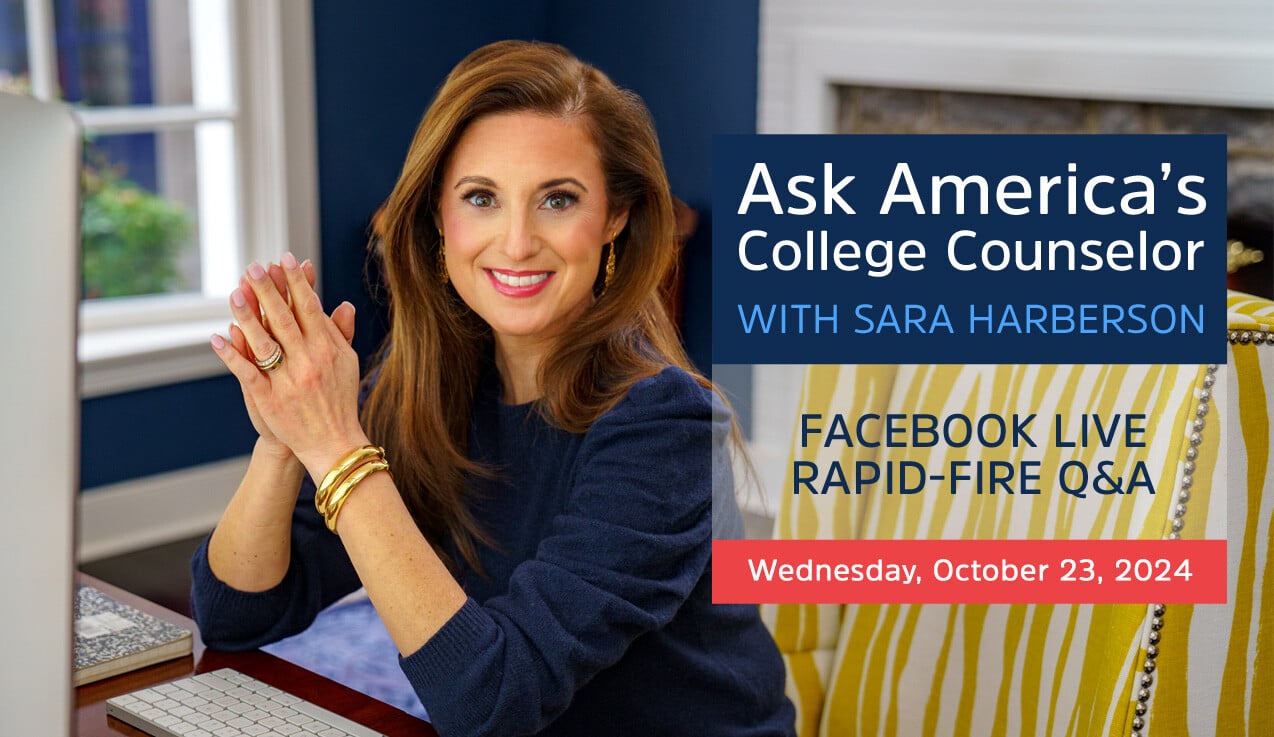If you're a sophomore or a junior in high school, you may have already casually Googled a few colleges and maybe even visited one or two with an older sibling. But to start your college search in earnest, you need to know how and where to begin. During my recent Facebook Live Q&A, I answered your questions and gave my insider advice on starting your college search.
In case you missed it, here’s a recap with a list of the questions I answered, the full video of my session, and some bonus questions that I didn't get to answer live!
HERE ARE SOME OF THE QUESTIONS YOU'LL SEE ME ANSWER:
- How do you get a student interested in starting the college search?
- What is the best way to research colleges and universities?
- My son is a junior and taking the SAT for the first time in March. How do we plan a college trip in late March/early April without actually knowing what schools are a possibility? Do you use PSAT scores as a guide or just wait for SAT scores and plan a trip over the summer?
- When is the best time to visit colleges?
- How can you get an accurate feel of a college campus in just a few hours time?
- Is it worth visiting highly selective colleges if you won't be competitive in the applicant pool?
- How do you start a college list?
- Why should you have a state or public university on your college list?
- What ratio do you suggest for safety/target/reach schools? Exactly how are these categories defined?
- What if a student is undecided about their major when applying to college?
- Are there certain majors that increase chances of admission at highly selective colleges?
- How can you tell if a college’s program in a specific major is strong?
- My daughter who is currently a junior in high school will only need 1 English credit her senior year. When determining mert based scholarships, is it better for her to dual enroll at a local college and start to earn credits towards her freshman year or is it better for her to take a full load at her high school during her senior year and maintain a high GPA?
- How important is it to take math all 4 years of high school?
- How strict are colleges when they say they require (not recommend) 3 (or 4) years of a language other than English?
- When is the best time to take the SAT or ACT for the first time?
- How heavily do colleges weigh the essay portion of the SAT or ACT?
- Should you share your SAT or ACT scores with colleges and universities during junior year?
- Is it true that kids who only take the SAT or ACT one time are penalized because they are not seen as striving for more?
- I’ve heard you say to take either the SAT or the ACT because both are not needed. What is the reasoning behind that?
- What should a student do if they are unable to visit a college campus because their family cannot afford the cost?
- How do you know if a college is affordable for you?
- Is it true that the best chance to get scholarship/merit money is to apply to a school that has a large endowment fund?
- How can you find out which colleges and universities offer the best pre-med programs?
BONUS Q&A- BIG QUESTIONS THAT DIDN'T MAKE THE VIDEO
1. Is it worth it to do the overnights offered by some campuses?
Overnights tend to be "hit or miss." Many colleges don't offer them because they can be risky on many levels. I would say that it's probably a little better to stay with a friend that you know on campus rather than let the admissions office arrange it with someone you don't know.
2. If you are applying to be a pre-med major, is it better to pick one of the sub specialities within that major if available versus just selecting say Biology or Chemistry?
They're all really competitive no matter which one you select. Keep in mind that you don't have to be a science major to be pre-med. Sometimes applying as a non-science major is a better plan for the college admissions process and when you apply to med school. For example, you could be an English major and take the pre-med prerequisites to apply to med school. As long as you've done well in general, in your science classes, and on the MCAT, you can be just as competitive and sometimes you'll stand out much more!
3. Do colleges know if your student get accommodations for a SAT/ACT?
Nope! They would never know unless someone shares that information (like the counselor).












